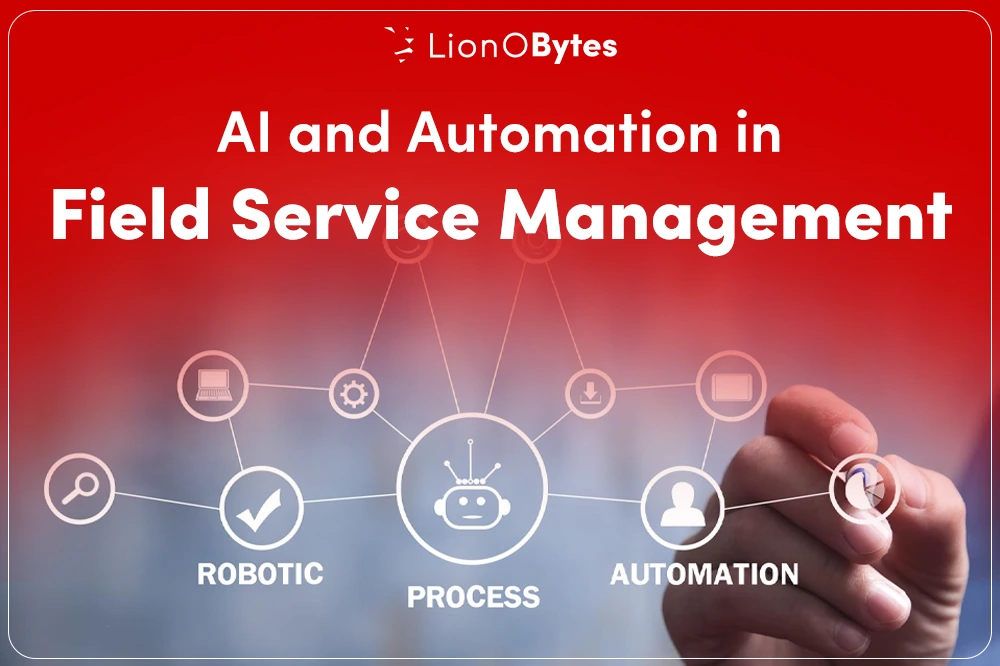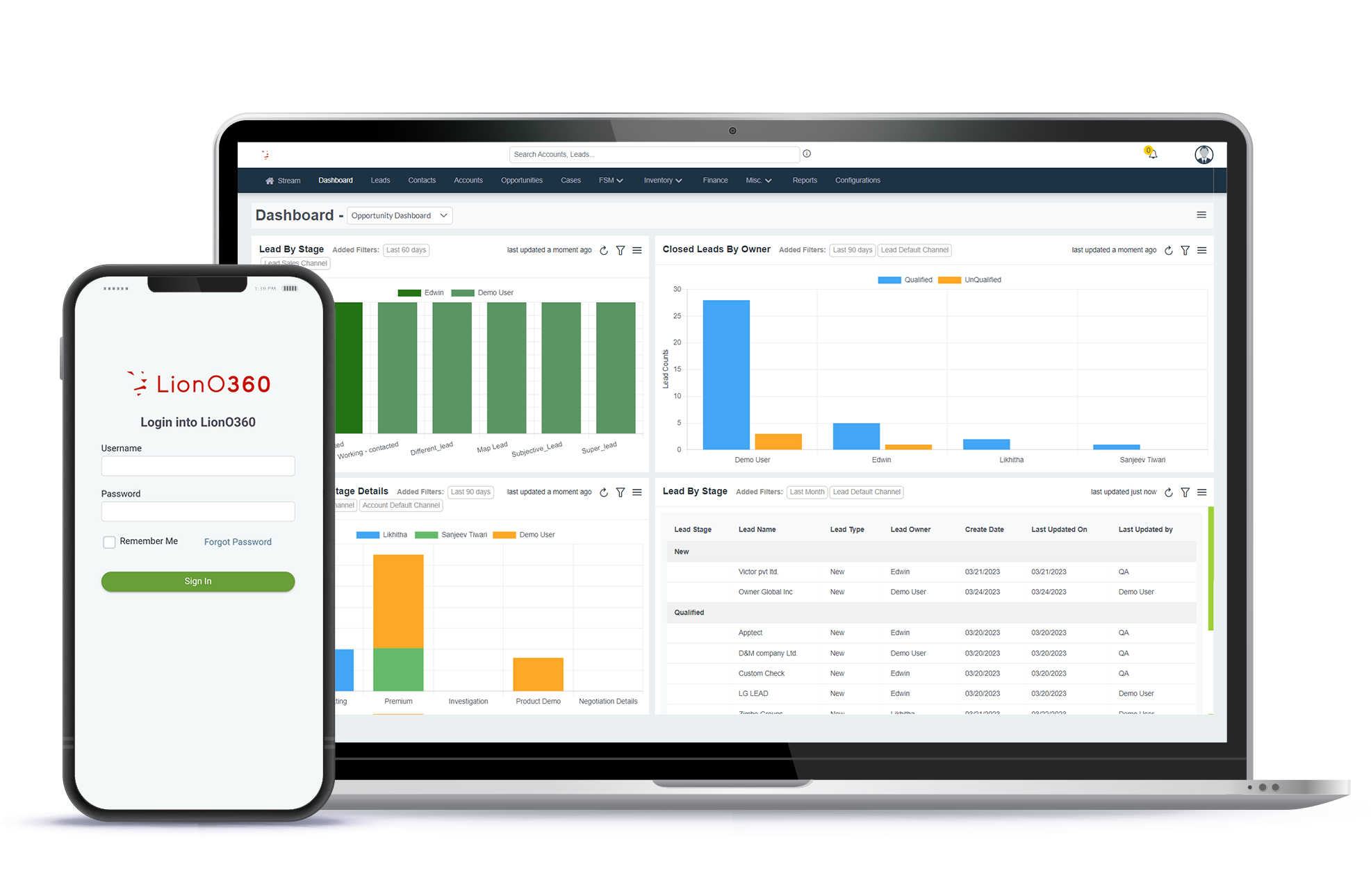
Field Service Management (FSM) is a mainstay of industries with mobile workforces. FSM traditionally entails manual scheduling, paper reporting, and repair-focused maintenance. But change is coming fast.
Firms achieve 15% productivity benefits after adopting AI-powered FSM solutions. AI allocates resources more efficiently, minimizes travel time, and automates routine tasks.
This blog takes a look at the trends that are defining field service management (FSM) in 2025. It emphasizes how AI and automation are transforming the sector. You will also learn the advantages of these changes and why LionO360 is the best option for FSM providers for businesses today.
AI and Automation: Remolding Field Service Management in 2025
AI is central to FSM trends of the future. The technologies are simplifying work, minimizing human error, and supporting predictive service models that forecast problems before they occur.
Innovation in Scheduling and Dispatching
Instead of managers manually assigning technicians to work orders, AI scheduling systems can consider skillsets, locations, availability, and job complexity in real-time. This ensures the correct technician is sent to the job, minimizing wait times and maximizing first-time fix rates. AI scheduling combined with auto-dispatching results in work orders being dispatched immediately to field agents' mobile devices, eliminating hours of paperwork.
Predictive Maintenance
Predictive maintenance is another trend that has gained traction. Customers benefit by never having to deal with disrupted service, and businesses benefit from increased customer loyalty.
Self-Service and Chatbots
Customers in 2025 want instant resolution. AI-powered chatbots and self-service centers enable customers to schedule appointments, track service status, or even resolve basic issues without having to call a representative.
Insightful Decision Making
AI analytics provides clear visibility to FSM leaders about performance, cost, and customer trends. By comparing performance with technician productivity, job completion time, and customer satisfaction, organizations can take actions that directly influence growth.
Improved Technician Experience
Field workers are now provided with AI-enabled mobile apps that give instant access to knowledge bases, step-by-step troubleshooting, and augmented reality assistance. Automation reduces manual tasks like updating job records, allowing technicians to focus on troubleshooting. This enhances both productivity and employee satisfaction.
Benefits of AI and Automation in Field Service Management
High Efficiency
AI eliminates human effort by automating tasks like scheduling, reporting, and data entry, allowing workers to focus on higher-value activities that enhance efficiency.
Lower Costs
Maintenance and routing optimization using predictive maintenance can reduce costs, enhance profitability, decrease downtime, and eliminate fuel expenses. Embedding automation in FSM software helps organizations save on fixed costs while delivering excellent service.
Enhanced Customer Experience
With faster scheduling, fewer missed appointments, better technician allocation, and predictive maintenance, customers enjoy seamless service with minimal disruptions. Self-service portals and chatbots offer 24/7 support and guidance, improving satisfaction.
Faster to Scale
Increased automation enables organizations to scale quickly. Whether handling 10 service calls or 10,000, AI-powered FSM systems help employees scale operations without delays.
Better Business Intelligence Insight
AI can extract meaningful insights from vast amounts of service data, revealing bottlenecks, training needs, and opportunities for aligning service plans with real customer expectations.
LionO360: Pioneering Field Service Management

When companies look to upgrade their FSM solutions, one name always tops the list: LionO360 by LionOBytes. LionO360 is designed for today’s organizations and integrates AI and automation to offer unmatched efficiency and customer satisfaction.
It includes scheduling, dispatching, inventory management, CRM integration, and real-time reporting. AI ensures the correct technician for each job, predictive maintenance avoids costly downtimes, and mobile connectivity empowers technicians to perform at their best.
LionO360 simplifies complex workflows, making adoption easy at the team level. Users experience higher efficiency, faster resolutions, and better customer retention.
Core Features of LionO360 FSM by LionOBytes
- Territory Management: Divide and manage sales territories for maximum coverage.
- Route Management: Intelligent route division minimizes inefficiencies and transportation expenses.
- Geo-Fencing and Check-In/Out: Verifies technician visits and tracks activities accurately.
- Questionnaires: Allows field reps to gather customer information on-site.
- Workflow Automation: Streamlines internal processes and customer engagement.
For 2025 business organizations that aim to merge technology with exceptional service delivery, LionO360 is the best bet. It is not only a tool but a strategy partner driving business growth. Book your free FSM demo today!
Also Read: Overcoming Challenges in Field Service Management
Frequently Asked Questions
1. What is Field Service Management?
Field Service Management is the process of planning, scheduling, and managing employees, equipment, and operations away from the office. It includes dispatching technicians, handling work orders, and monitoring service delivery.
2. What is AI in Field Service Management?
AI in FSM assists with automating scheduling, forecasting maintenance problems, route optimization, and analyzing service data. It minimizes manual labor while boosting efficiency and customer satisfaction.
3. Why is predictive maintenance important?
Predictive maintenance uses AI and IoT data to identify faults before they turn into major issues. This minimizes downtime, reduces repair expenses, and ensures continuous service for customers.
4. Why should firms use LionO360 for FSM?
LionO360 offers an automation and AI-based all-in-one FSM solution. It includes intelligent scheduling, predictive maintenance, mobile technicians, and embedded CRM capabilities - all a business needs to put efficiency and customer service first.












